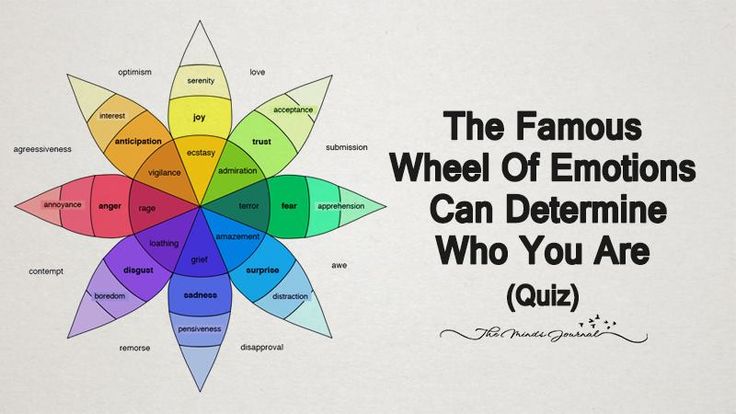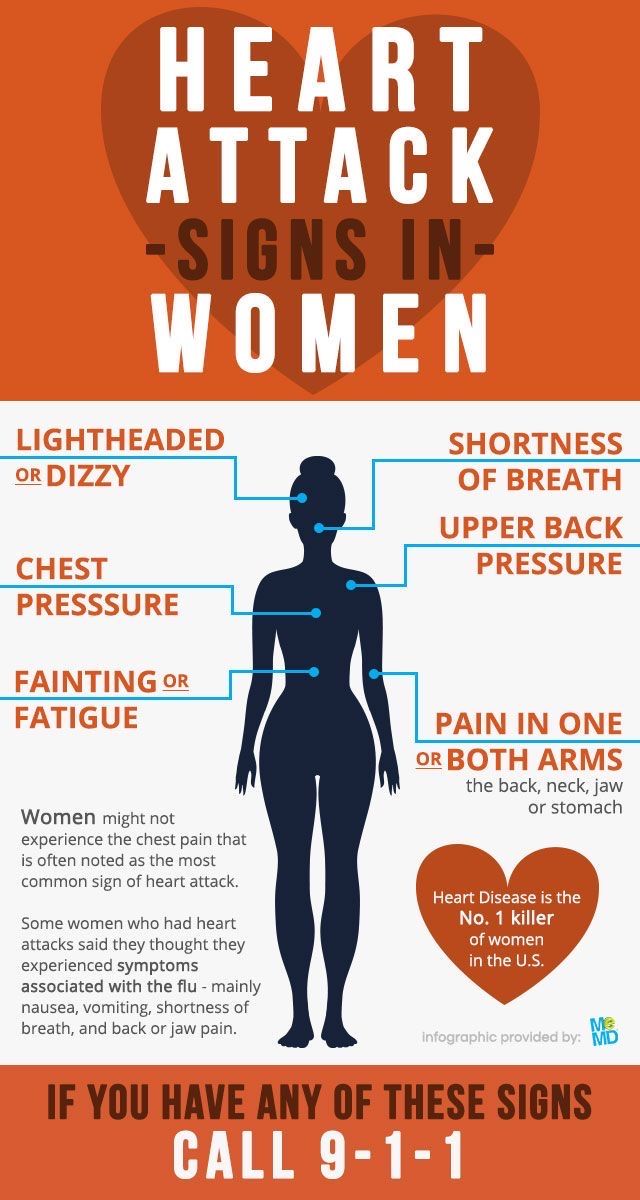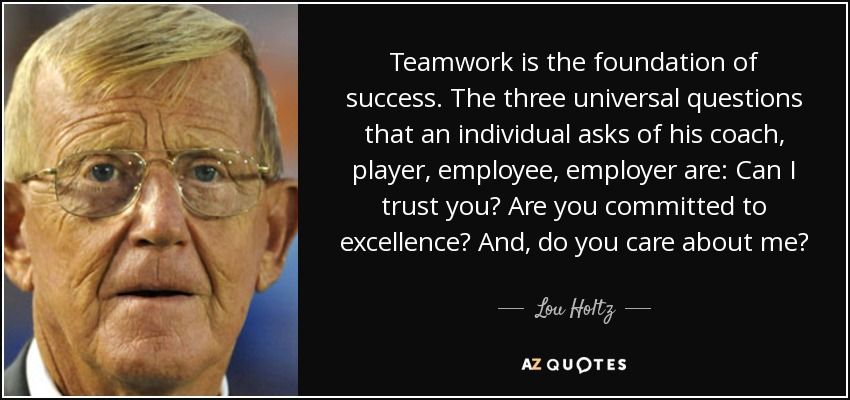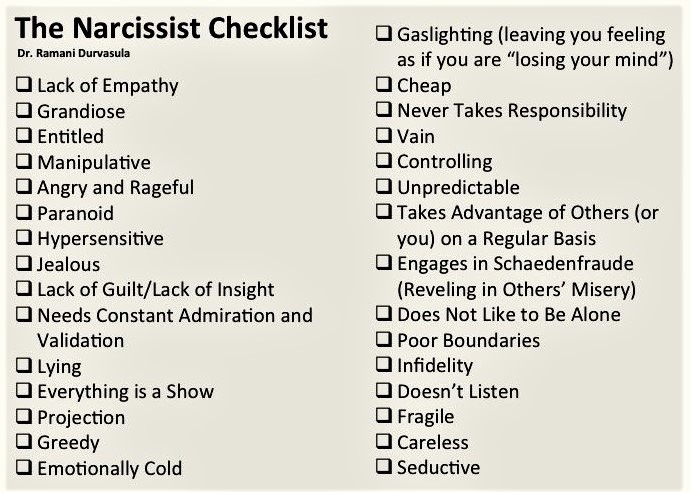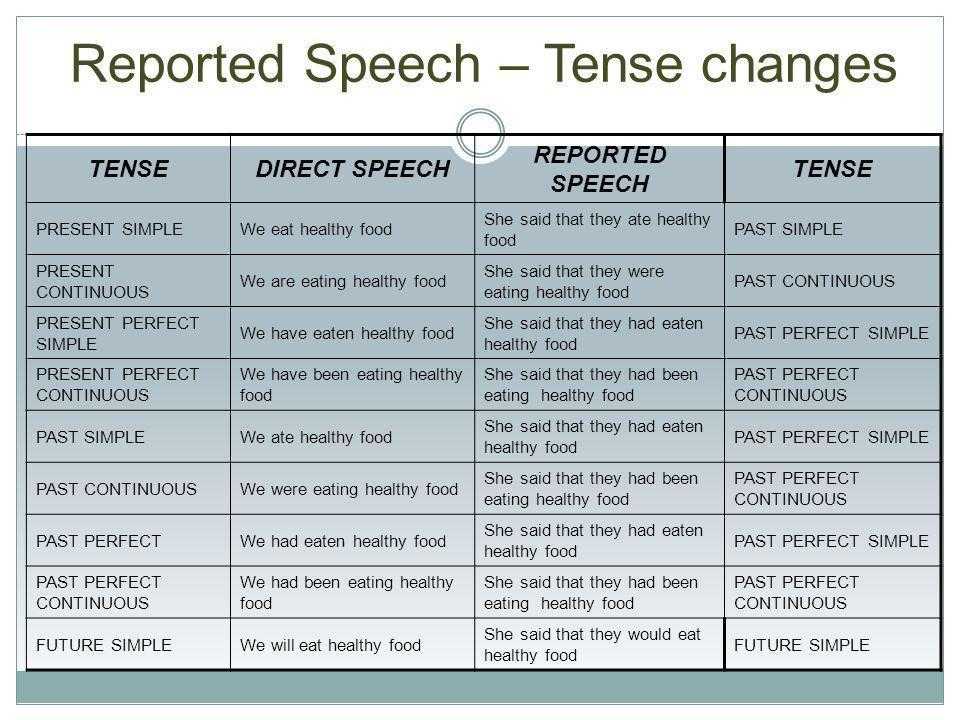Introvert police officer
Can I be a Police Officer as an Introvert?
There are many misconceptions about what it takes to become a police officer. If you’re an introvert or even just shy, one of the biggest questions you may have is, ‘Can I be a Police Officer as an Introvert?’. Being a Police Officer is a very rewarding career. It’s not for everyone. While many police officers are extroverts, some are introverts. Read on to decide whether you are an introvert and if you are, whether being a police officer is for you.
Table Of Contents
- Can an introvert become a police officer?
- How do I know if I am an introvert?
- Characteristics of Introverts
- Key characteristics of an introvert
- How do I find out if I am an introvert?
- Characteristics of Introverts
- So, can I be a police officer if I am an introvert?
- Different roles within the police
- What roles will suit me within policing if I am an introvert?
- I am unsure whether I will be suited to Policing as an Introvert
- Final Thoughts
The police service is one of the most demanding jobs in the world. Not only do Police Officers have to deal with dangerous situations on a daily basis, but they must also be comfortable with the responsibility of protecting the public.
People often assume that all police officers are extroverts who enjoy speaking in front of crowds and interacting with strangers.
Well, it’s true that most officers have to possess these skills to a certain extent, but there are other qualities that can be just as important for the job.
Introverted people may make very good police officers since they know how to listen patiently and quietly, and how to ask questions without making others feel uncomfortable. Read on to find out whether you are an introvert and whether Policing is for you.
How do I know if I am an introvert?Characteristics of IntrovertsOne of the most common personality types is the introvert, someone who is quiet, reserved, and who prefers to spend time alone rather than with others.
Many of us fall somewhere on the introvert-extrovert spectrum, but if you identify with all or most of the characteristics listed below, you may be an introvert. Notice the word “may” in that sentence? It’s because introversion is not a black or white characteristic; rather, it’s a spectrum, like intelligence, and some of the characteristics listed below may describe you, while others may not.
Moreover, you may be an introvert or extrovert, but be able to swap your position (I.e put on a facade) depending on the situation. For example, some introverts will be able to take command positions, whereby they need to be assertive and direct with people.
Key characteristics of an introvertIf you recognise yourself in the majority of the below, you may be an introvert.
- Are reflective
- Are self-aware
- Take time making decisions
- Feel comfortable being alone
- Need quiet to concentrate
- Don’t like group work
- Prefer to write rather than talk
- Feel drained after being with a group of people
- Have a few close friends as opposed to a large group of people you associate with
- Daydream or use their imaginations to work out a problem
If you do not recognise yourself in the above, but thought that you were an introvert, it may be that you are just shy. Shy people can be police officers. By the nature of working in teams, you’re likely to become less shy in yourself.
Shy people can be police officers. By the nature of working in teams, you’re likely to become less shy in yourself.
There are a number of different tests you can do to find out whether you are an introvert. One of the simplest and most credible is the Myers-Briggs Test. It will tell you your personality type and the characteristics of this type.
Although personality types are always interesting to do, they only tell up our default personality type, they don’t tell us whether we are able to adapt depending on our situation.
It may be that you are an extrovert and the life and soul of the party. However, you may be capable of mapping our complex business strategy, which would normally be associated with an introvert.
Equally, just because somebody’s instinctive personality type is an introvert, this does not mean that they are incapable of dealing with situations that involve conflict. It just means that after dealing with this, they may feel drained and want some time on their own to reflect on their actions.
Yes, if you are an introvert, you can be a very effective police officer.
What you need to consider are your own limitations. If you do not feel like you would be capable of dealing with situations that involve large numbers of people and potential conflict, you may need to consider whether policing is for you.
Although we have just been through some of the limitations of introverts, please remember, introverts also have their own skills sets that extroverts don’t necessarily possess. Such as the ability to think through a situation. These are invaluable to policing as the skills that the extroverts have.
Moreover, as a police officer, you will work as part of a wider team, as an introvert, this may not appeal to you, however, it should give you confidence that you are not on your own. If you need support, you have colleagues around you that will always help.
Being an introvert should not be seen as a negative, instead, spin this around and think of all of the different skills that you bring to policing above your extrovert counterparts. Like any good team, the key to success is to have people will different attributes in order to make the whole.
Like any good team, the key to success is to have people will different attributes in order to make the whole.
If you are an introvert, front-line (dealing with members of the public) policing may not be for you. Most forces have a policy that officers have to complete 2 years’ service as a ‘response’ officer; i.e., responding to 999 incidents.
After this, you are able to apply for other roles within policing. They could be a role in investigation; trying to detect crimes, or neighbourhoods, which would involve dealing with members of the community, but potentially less conflict or you may choose to go into a more specialist role. These roles could involve, counter-terrorism, or joining a safeguarding unit.
Some of these roles will involve more ‘office based’ work, which will potentially see you having to deal with less conflict and using more of the skills that an introvert is comfortable with.
However, you have to remember that you could be called upon at any time to perform ‘front line’ duties.
Introverts are typically more reflective and reserved than extroverts. They may be more cautious than your average officer, and they may need time to absorb and process information.
As an introvert, you are more likely to be more comfortable in more strategic roles that have less contact with the public.
I am unsure whether I will be suited to Policing as an IntrovertIf you are unsure whether your personality will prevent you from being a suitable police officer, why not try before you buy? What do I mean by this? Why not have a go at being a police officer before fully committing to it.
Why not join your local police force as a Special Constable? That way you will go through a similar format of training as a regular police officer and then you will be able to go out ‘on the street’ and experience what a police officer does.
This should give you a sense of whether the role of a police officer is for you. It will also give you the opportunity to build your confidence in a police environment. If you are interested, check out this article, to find out more about the Special Constabulary and what they do.
It will also give you the opportunity to build your confidence in a police environment. If you are interested, check out this article, to find out more about the Special Constabulary and what they do.
Why not trying to do a ‘ride along’? Most forces will offer a ‘ride along’ scheme, which will allow you to go out with a police officer to see what their role involves.
If this is not for you, but you still want to be part of the policing family, why not look for a police staff role? There are around 100 different roles undertaken by police staff, from those that work in the call centres taking the 999 calls, to intelligence analysts to people working in forensic recovery.
Final ThoughtsIn summary, can introverts be police officers? Yes, definitely, introverts can definitely be police officers. There are pros and cons to bother introvert and extrovert tendencies, policing needs both introverts and extroverts, working together in order to have a good balance of skills.
If you are an introvert and considering becoming a police officer, why not test whether it is for you with some of our recommendations above?
Police Officer Requirements | PoliceHow
While a career in law enforcement may sound desirable to many, it's not for everyone. In fact, most successful police officers fall under a certain
category of personality types, such as the following: introverted, sensing, feeling, & judging (ISFJ).
Typically, people with the ISFJ traits are loyal,
observant, critical thinkers, detail-oriented, enjoy serving others, value stability & tradition, and have an acute sense of morality (which helps distinguish right
from wrong). Police officers will have to deal with almost every type of scenario imaginable throughout their careers, including having to deal with people out of control on a regular basis,
life or death sitatutions, and must be able to make solid decisions in split seconds. In addition to having the right personality, becoming a cop will require quite a bit of
hard work, dedication, and a clean rap sheet (meaning that there is nothing
on your criminal record that could lead to disqualification, such as a DUI, domestic violence, or even too many speeding tickets). Once you are able to determine whether or not you
meet the basic requirements to become a police officer, then start searching for departments that appear to be hiring. Keep in mind that every police department will
have their own set of standards and specific requirements which must be adhered to in order to progress. If you have special circumstances or aren't quite sure whether or not
you would qualify, don't be afraid to give the police department a call.
In addition to having the right personality, becoming a cop will require quite a bit of
hard work, dedication, and a clean rap sheet (meaning that there is nothing
on your criminal record that could lead to disqualification, such as a DUI, domestic violence, or even too many speeding tickets). Once you are able to determine whether or not you
meet the basic requirements to become a police officer, then start searching for departments that appear to be hiring. Keep in mind that every police department will
have their own set of standards and specific requirements which must be adhered to in order to progress. If you have special circumstances or aren't quite sure whether or not
you would qualify, don't be afraid to give the police department a call.
General Police Officer Requirements:
- Be a United States citizen
- Be at least 21 years of age
- Have good vision (usually 20/20 or better)
- Obtain a high school degree or a GED
- Obtain at least 40 college level credits
- Possess a valid driver's license
- Pass a rigorous physical fitness test
- Pass multiple written exams related to reading comprehension, report writing, grammar & spelling, and in some departments, basic policing procedures
- Stand out and pass the police oral board interview
- Pass a police polygraph test
- Pass a criminal background check
- Pass the psychiatric evaluation
- Graduate from the police academy
Factors that CAN lead to disqualification:
- Felony & some misdemeanor convictions
- Domestic violence
- Hate crimes
- Perjury & forgery
- Unlawful sexual misconduct
- Driving under the influence (D.
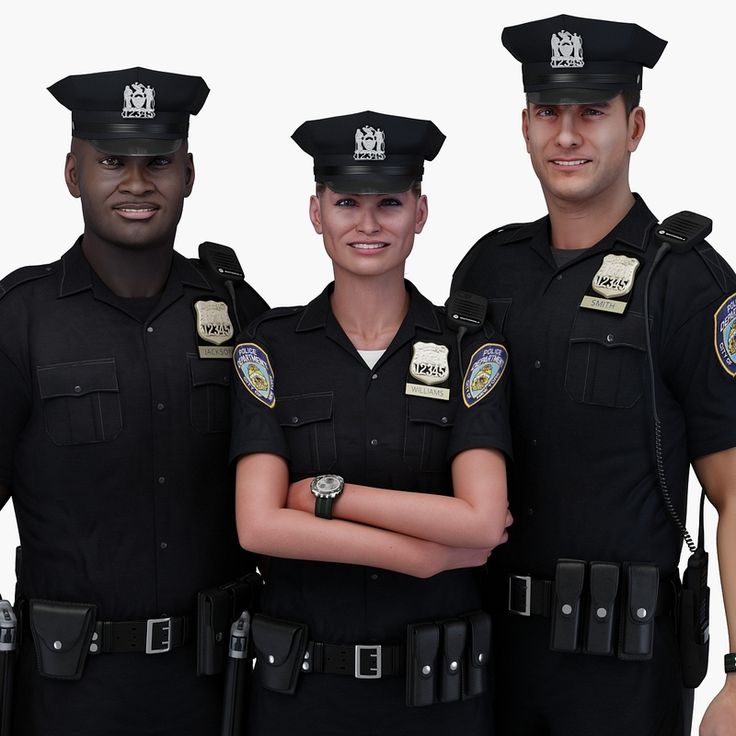 U.I. / D.W.I.)
U.I. / D.W.I.)
- Recent drug use or drug dealing
- 2 or more at-fault driving accidents
- 3 or more traffic violations in the past 3 years
- Bad credit or outstanding collections
- Getting fired from previous jobs
- Dishonorable discharge from the military
- Lying or being deceptive at any stage of the hiring process
Continue Learning: Find out what police officers do on a routine basis for their job.
Please enable JavaScript to view the comments powered by Disqus.
Extroverts or introverts: who works better? - Relationships
Psychological testing is getting more and more distribution upon hiring. But then, already in the work process, managers do not always take into account the psychotypes of employees, putting before them tasks. And in vain. An extrovert and an introvert will perform the same task completely different.
Who are extroverts and introverts?
These are two psychological types - antipodes. If aspirations the first are associated with sociability, the manifestation of oneself in the outside world, then the second focused on the inside. If an extrovert has a broader outlook, then studies of the introvert are more profound. Extrovert is more optimistic and filled enthusiastic, the introvert is more reasonable and more critical.
#Psycho
An introvert loves you: how can you guess?
A lot of research by psychologists and even neuroscientists pursued the goal is to find out who is smarter - an extrovert or an introvert. So far a clear answer no to this question. Each new study confirms only one thing - with solving the same problem, the brain of an extrovert and an introvert works differently. But when an extrovert needs to start thinking for a while an introvert, and vice versa, the second one does it better.
Of course, there are no absolute extroverts and introverts. Born with a certain psychological type, we are brought up in family, society, we ourselves work on ourselves, we make a habit unusual for ourselves lines of behavior ... But all the same, in each of us, those qualities that will correspond to one of these two psychotypes.
Born with a certain psychological type, we are brought up in family, society, we ourselves work on ourselves, we make a habit unusual for ourselves lines of behavior ... But all the same, in each of us, those qualities that will correspond to one of these two psychotypes.
How extroverts and introverts behave at work
Discussing a new idea:
The extrovert will shine. Immediately begins to draw jelly banks, talk about cosmic proportions, will bounce on a chair, wanting to run and tell the whole world about it. Quickly distribute tasks to subordinates. However, in the case of implementation, he gladly delegates authority, switching his attention to new projects with exactly the same enthusiasm.
An introvert is likely to criticize, show skepticism and at best will answer: "I'll think about it." But after this idea can become for him obsessive. He will study someone else's experience, put everything on the shelves, take into account the risks, and after a while can present an entire strategy, even if no one needs it anymore. In the case of implementation, due to his meticulousness, he will not lose control and will himself participate throughout the entire journey.
In the case of implementation, due to his meticulousness, he will not lose control and will himself participate throughout the entire journey.
Product presentation needed:
An extrovert will start thinking about how he will look like, what words, jokes will be able to impress, what techniques will help keep the audience. And in the end, he will be able to convey the necessary, even if the main tool is personal charm.
An introvert will be able to prepare excellent material for presentations, with examples and figures, with a lot of persuasive arguments. But herself unable to make a presentation. And realizing this, you may even get sick the day before or get into some trouble.
Need to make a call with a commercial offer:
The extrovert will attack, enthusiastically describing sentence. At the same time, practically without allowing the interlocutor to insert a word on the other end of the wire. And many will surrender under his pressure and infectious enthusiasm.
Introvert will turn pale, sweat, shake before typing each number. The dialogue, most likely, he will build on questions, and not on spilling information. It is possible that the calls will be accompanied by letters.
Need to conduct internal training in the company:
An extrovert will prepare a course "on record". He will show and dictate. Give examples from your (as it seems to him) successful experience. Basic the meaning of his training will be - think like me, do like me.
Introvert will type historical examples, statements well-known personalities, examples of competitors and from the experience of the company. Will prepare tasks and submit their results for general discussion. So he is like will be eliminated from the process, shifting responsibility to the greats, and the evaluative role - on the students themselves.
It is necessary to find the reasons for the inefficiency of the department:
An extrovert will try to participate in the work of the department, will conduct a survey. Most likely, he will come to the conclusion that there is no rigid discipline, new technology and cool specialists. Can suggest a plan to improve the situation, a system of training and education.
Most likely, he will come to the conclusion that there is no rigid discipline, new technology and cool specialists. Can suggest a plan to improve the situation, a system of training and education.
An introvert will begin to understand the motivation of employees and the absence/presence of opportunities to realize their abilities. However, he cannot always formulate and communicate the outcome to management, in part because of the belief that management still won't understand it.
Need to become acting manager:
An extrovert can change internal routines, require reports, issue new plans for each of the departments. Most likely will a series of general "motivational" meetings. Can change the bonus system and KPI. Much attention will be paid to the external decoration of the office, the etiquette of communication with clients and partners.
An introvert will manifest himself only in a small company that it can be like a family for him. In other cases, it will be limited to formal execution responsibilities. In "his" company, perhaps he will talk with each of employees personally. Identifies weaknesses, unrealized opportunities, destructive, toxic employees, will make experimental permutations.
In "his" company, perhaps he will talk with each of employees personally. Identifies weaknesses, unrealized opportunities, destructive, toxic employees, will make experimental permutations.
In what professions are extroverts and introverts successful?
the external side of the work, or the main functions are related to communications and publicity. Also, extroverts are good as engines in the implementation of short projects, they quite effectively cope with the tasks of quick sales. Introverts will be more useful in long-term projects, long-term planning and development, scientific research, strategic tasks, they are indispensable in gray roles. cardinals.
Extroverts:
- Educator, teacher, lecturer. Children and older students are drawn to those who are naturally inquisitive and kind to them. This is the case where an extrovert can fully to be realized as a leader and authority.
- Office manager, secretary, personal assistant. Communication, diversity people, the urgency and importance of a large number of cases - all this corresponds to the energy extroverts.
 In addition, here they will be able to feel their importance and indispensability.
In addition, here they will be able to feel their importance and indispensability. - Tour guide. Circulation of information, movement, a lot people… and the opportunity to show off.
- Animator, artist. Recognition, fame, fun, endless the number of new people.
- Correspondent. Communication and natural curiosity find for this profession. And such components as work in the frame - only flatter the extrovert.
- Military, police. Extroverts are comfortable in systems with strict hierarchy and discipline. And they are ready to support and protect these values.
- Lawyer. It requires both erudition, professionalism, as well as a love of adrenaline, and a predisposition to manipulation. Extroverts have it all.
Introverts:
- Accountant, financier. Attention to detail, ability focus for a long time, the ability to catch other people's mistakes. All this speaks in favor of an introvert in this area. Moreover, the accountant now more and more often they work remotely, which makes this occupation desirable for the introvert.

- Writer. Introverts are very often creative personalities, but not public. Being a writer is an opportunity to be in your own world for days, to describe their conclusions, while receiving a reward.
- Scientist. The desire to work for results, as well as the ability to identify and admit their mistakes - this is how a scientist should be. And no matter how much time and effort the job requires.
- IT specialist, programmer. Ideal option for introvert, and for the employer. The person will be focused on his task and not back off until he does his best.
- Designer. Particularly suitable if you can work remotely, without contact with customers. Creative introverts are great at problem solving task for another, but with a certain freedom.
- Marketer. Ability to analyze, identify weaknesses and strong points, as well as inexplicably truthful intuition make introverts excellent marketing specialists in a wide variety of fields.
- Veterinarian, cynologist, animal trainer.
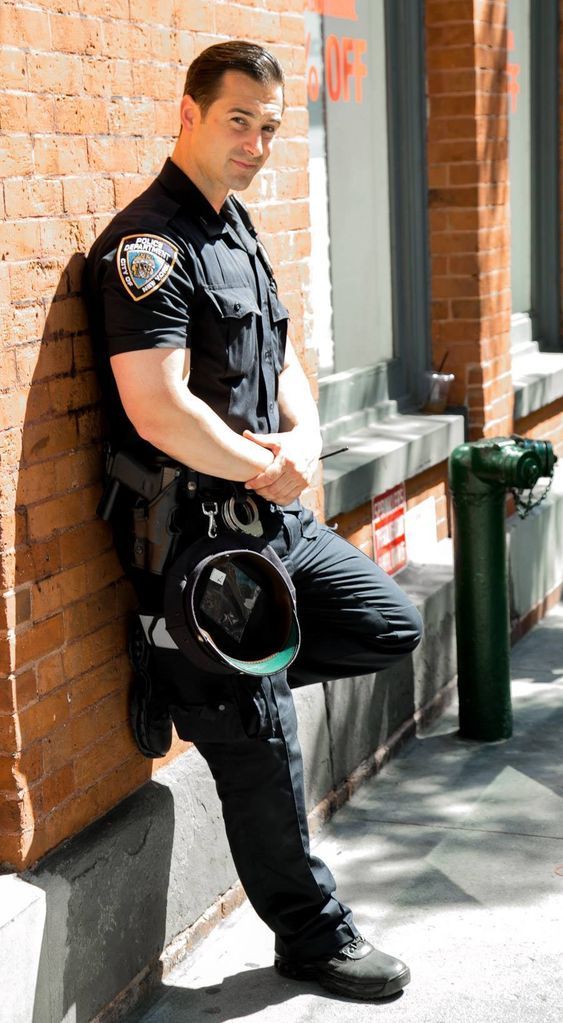 Introverts are usually love animals. And this love is mutual.
Introverts are usually love animals. And this love is mutual.
How to determine your psychological type
To truly understand who you are, of course, you need expert advice and testing. But there are sets of simple basic signs, the presence of four of which will simultaneously testify in favor of extraversion or introversion.
You are an extrovert if:
- You can talk on the phone for hours
- Often act first, think later
- Get along with people easily
- Systematically visit the leisure sites
- at parties “started” and have fun before dancing on the table
- You can keep the doors open wide open
if:
- you write, even when you call
- for a long time and think for a long time as a result, you can do nothing
- Avoid meeting new people
- Prefer home to any other pastime
- Get out of parties earlier than others
- Lock yourself wherever possible
Careers for extroverts and introverts.
 How to choose the right profession according to the psychotype
How to choose the right profession according to the psychotype
All these concepts came to us from the world of psychology. If you are not yet familiar with aspects of your Self, hurry up to get acquainted. After all, it is they who will help you understand which profession will bring maximum satisfaction, and who you should never become.
We have already talked about choosing a profession according to the type of temperament. Now it's time to talk about psychotypes.
Introvert or extrovert: who are you?
In a company of friends, a school class or a university group, sociable people who pay attention to their person always stand out. They love to be the center of attention, have excellent public speaking skills, and make friends easily.
These people are extroverts. They resemble a clot of energy, which is first wasted, and then immediately replenished due to interaction with the outside world.
Their complete opposite is introverts. These people purposefully go into the inner world. They do not like noisy companies, as they are not very sociable. An introvert does not like to waste his own energy on outsiders, trying to accumulate it inside himself. As soon as he visits public events, he immediately feels exhausted, devastated. To restore vital energy, he will have to be alone for some time - only this will give him strength.
These people purposefully go into the inner world. They do not like noisy companies, as they are not very sociable. An introvert does not like to waste his own energy on outsiders, trying to accumulate it inside himself. As soon as he visits public events, he immediately feels exhausted, devastated. To restore vital energy, he will have to be alone for some time - only this will give him strength.
Some people confuse introverts with sociophobes, misanthropes, and other types of anxiety disorder. But this is a big mistake! Introverts do not experience fear and anxiety before communication, dislike for others, do not have a sense of inferiority. They just prefer silence and solitude.
An ordinary introvert will easily survive forced communication or the need to speak without any stress choose for yourself.
Extrovert
Extroverts are people who prefer an active social life. It is important for them to win the favor and approval of others. However, this is given to them without much difficulty, because the ability to win over is in the blood.
However, this is given to them without much difficulty, because the ability to win over is in the blood.
Experts unanimously assert that this personality trait is innate, like eye color, height, etc.
Such a person strives to realize himself in the professional sphere, doing everything possible to get material, psychological recognition. And to achieve his goals, he uses the energy of others.
An extrovert is easy to recognize by external signs. They are characterized by:
- active gestures,
- confident voice,
- impulsive behavior,
- sparkling humor.
His strong point is communication with people, effective organization of employees. And he uses all this for his own realization
Professions for extroverts
Given all his qualities, it is not surprising that he consciously chooses to work with a large team. It is important for him to find a place where all the levels of the hierarchy will be clearly spelled out in order to methodically reach the intended goal.
Extroverts like to actively influence the world around them. They like to act, not to be an outside observer. That is why you will most often find them in the following professions.
Educator
Here the extrovert is in his element, because he is constantly accompanied by dozens of curious and adoring eyes, for whom he is a king and a god! It was not in vain that he chose this profession: extroverts are most similar to children in their openness and curiosity. Primary school teacher, educator or tutor - such professions will never bother our hero!
Advertising Manager
It is vital for this specialist to be able to influence people, to convince. And here the skills to quickly make acquaintances and easily find a common language for an extrovert will come in handy. He feels fine in such an active environment. But he will need business acumen.
Secretary, assistant manager
The essence of this profession is to actively help another person, in organizing his work, and often personal time. And it is not surprising if often in the course of his official duties he has to push his own life into the background.
And it is not surprising if often in the course of his official duties he has to push his own life into the background.
However, what seems to many to be a minus, an extrovert often sees as an advantage, because here he can actively participate in the most interesting processes. And rewards for this help significantly increase his motivation.
Take a look at the famous pair of introverted misanthrope Sherlock Holmes and extroverted humanist Doctor Watson.
HR specialist, recruiter, personnel officer
Recruitment, assessment of the candidate’s abilities and his suitability for a particular position, conducting interviews, selecting a team for the most effective performance of a variety of tasks of any complexity ... Many of these duties may seem tedious and extremely boring .
But only an extrovert will be sincerely happy to invest his own energy in communicating with unfamiliar people, being in the eternal search for candidates with the competencies he needs, in resolving difficult relationships within the team.
Guide-interpreter accompanying tourist groups
This person will be the main interlocutor and escort outside your home country. His artistic nature allows him to easily find a common language with several tourists, settle conflicts that have not yet begun and fall in love with other countries.
With an extrovert guide, you will learn the most intimate secrets and interesting details about the life of foreigners, hear the best anecdotes and funny situations, entertaining stories related to sights.
Make no mistake about him: he is well aware of the responsibility entrusted to him and will resolve even the most difficult situation!
Organizer of shows and holidays, presenter, toastmaster
Well, everything is clear here. An extrovert is a person whose energy splashes outward. Putting on shows and parties for people is in his blood.
Usually extroverts are the best at improvising, controlling the levers of any invisible processes, being the center of attention.
Correspondent, journalist
The main feature of journalists and especially correspondents is their ability to communicate and curiosity.
Here, an open person will come in handy, who, even when sleepy, will be glad to make contact and win over the first person he meets. It will not be difficult for him to get out of any difficult situation with dignity and quickly process the information received.
An extrovert likes to learn any news and share it with others.
Administrator
An extrovert is good at organizing and motivating people, which are essential qualities of a good administrator.
It is enough to have a little self-confidence, developed self-discipline, motivation in order to solve any issue in the best way.
Police officer, officer
Extroverts love a structure with a strict hierarchy, a pronounced strong leader. This greatly increases the attractiveness of any profession for an extrovert. That's why he likes to be a high-ranking policeman or military man.
If the truth is on his side, he will move towards his intended goal by any means. And the accompanying glory of the guardian of order or defender gives this process a special nobility and additional charm.
Lawyer
Here the extrovert acts as a predator tamer. Just one unusual question, one well-placed gesture can turn the situation upside down. That's why juries often like him so much.
An extrovert is often confident that he is right, so he will try to do everything to get his ward out of a difficult situation.
Introvert
Introverts are closed and focused on exploring their own inner world
American psychologists are sure that there are not so many introverts among us - only 30%. And many people misunderstand the true nature of this psychological type. We offer a detailed understanding of this issue, so as not to be victims of prejudice.
So, an introvert is someone who is the first to leave a noisy party under the pretext of a trip to the country or extreme fatigue. Many people think that these tricks are complete nonsense. In fact, there is no catch and deception, because the introvert really prefers rest alone to a cheerful noisy gathering.
Many people think that these tricks are complete nonsense. In fact, there is no catch and deception, because the introvert really prefers rest alone to a cheerful noisy gathering.
Introversion is an innate quality of the psyche, which is characterized by the orientation of the personality towards oneself or inside oneself.
If an introvert has to interact with others for a long time, he experiences great stress. But he tolerates short contacts quite normally.
American scientist Eysenck distinguishes 2 types of introverts :
- emotionally stable introverts correspond to the phlegmatic type of temperament;
- emotionally unstable (neurotic) introverts correspond to the melancholic type of temperament.
Unlike extroverts, who draw their vitality from communication with others, introverts take energy from their own emotions, experiences, memories
Their source is their own inner world, which is why they turn to it so often. It is enough for an introvert to sit at home, in peace and quiet, listen to nostalgic music, remember a trip with friends three years ago - and he is a cucumber!
It is enough for an introvert to sit at home, in peace and quiet, listen to nostalgic music, remember a trip with friends three years ago - and he is a cucumber!
Professions for introverts
Such a person is suitable for any profession that requires great concentration. He does not feel discomfort if he has to be in one place for a long time and alone.
Introverts become good scientists, philosophers, writers, explorers, travelers.
Distinctive features of introverts:
- organization,
- punctuality,
- restraint,
- discretion,
- thoughtfulness,
- pedantry.
Despite outward calm, strong emotions can rage inside an introvert
Many mistakenly believe that introverts are often insecure and modest. In fact, most of them have a fairly high self-esteem. It's just that they are not characterized by demonstrative behavior, which is why others do not understand them.
Introverts are loved for their constancy. They do not like change, so they try to stay in the same job as long as possible. But at what kind of work - we now find out. Check out the list of the most acceptable jobs for introverts.
Account Manager, SMM Manager
In general, any profession is suitable here, within which you can only communicate via email or social networks.
Introverts love familiar surroundings without crowds of strangers. So they minimize the stress factor. But for such activity it is necessary to have a high level of self-organization.
Copywriter, blogger, writer
Like any creative person, an introvert needs self-realization. And it is quite natural that he wants to be heard. At the same time, he does not like to communicate with people. Paradox? Not at all if you try to do it in writing.
Database Worker
Many organizations need specialists to complete and maintain databases.
Few people hold this position for long. Perhaps an introvert who can easily concentrate on one task for a long time, perform mechanical work and at the same time communicate with the outside world to a minimum.
Perhaps an introvert who can easily concentrate on one task for a long time, perform mechanical work and at the same time communicate with the outside world to a minimum.
Analyst
Sales, Marketing, Logistics, Finance – almost every business needs an analyst. An introvert here will feel in his element: perform an analysis of external and internal factors, indicators, develop a strategy for bringing the direction to a new level.
Most of the work is related to algorithmization, but an introvert can also realize himself from the creative side.
Accountant
In accounting, an introvert likes clear regulations from the legislation.
But there are nuances. Often, working as an accountant is associated with a high level of stress. In addition, many accountants are forced to constantly contact with external counterparties and services (auditors, banks, tax authorities, suppliers, contractors, etc. ).
).
IT specialist
We all know at least a dozen jokes about programmers who live in their own world of codes and numbers. As they say, in every joke there is a share of a joke.
Many introverts go to the world of virtual reality not only for professional realization, but also for high earnings. And here there is where to turn around: a system administrator, a technical support service, an external consultant, a developer, and many other specialties involve independent work and minimal communication.
Laboratory worker, researcher
Often, introverts get jobs in research laboratories, whether it is a scientific department or a medical institution. Communication with the outside world here is carried out not through people, but through materials and data that need to be studied and verified.
However, many scientists can interact more actively with others (for example, when conducting psychological or sociological research).
By the way! It is not necessary to break yourself if it does not come out with writing a term paper, control or other scientific work. For our readers, there is now a 10% discount on any kind of work that can cause difficulties.
For our readers, there is now a 10% discount on any kind of work that can cause difficulties.
Technologists
Process engineer, process chemist, technical specialist - all these people are involved in the development of new recipes, quality control of raw materials, analysis of the results, search for the causes of marriage.
True, from time to time an introvert will still have to communicate with customers or suppliers, to make a product presentation. But more often than not, he will not experience much discomfort from this, because he will remain alone with his thoughts for the lion's share of the time.
Worker of art
An introvert as a creative person must be able to realize himself. And any area of art is great for this. It is enough just to be able to turn it into a professional activity.
Believe it or not, introverts are great conversationalists and friends. By mistake, many people think that they do not know how to properly build communication.
 In fact, they can do everything, they just do fine without it
In fact, they can do everything, they just do fine without it
Question: what if I like a profession that does not fit the description at all? You have to think logically here. If an extrovert chooses a position where he cannot waste his energy during the working day, he will endure the brain of the home.
If, on the other hand, an introvert has to be constantly in the thick of things, he will feel like a squeezed lemon. Both inevitably lead to long-term stress.
Some will throw up their hands in bewilderment: “But what if I don’t fit any of the above descriptions?” Then the next paragraph is for you.
Ambivert
Ambivert is the most flexible personality type, able to adapt to any conditions.
Ambivert is an intermediate option between introvert and extrovert
What does it mean to you if you are an ambivert? This means that you have an unlimited choice of professions. Depending on the situation, you will manifest the qualities of either an introvert or an extrovert. With different people, you will be either a reckless merry fellow, or a modest quiet one.
With different people, you will be either a reckless merry fellow, or a modest quiet one.
American researchers have calculated that approximately 38% of people are somewhere between introverts/extroverts.
Ambiverts are average in all respects. For example, they feel completely calm not only in the crowd, but also alone.
It can be different. For example, sometimes they want to feel like the center of the universe and the soul of the company. But it often happens that they need to be alone with themselves.
In general, these people combine the strengths of both psychological types: their sociability, friendliness and openness are harmoniously combined with concentration, the ability for solitude, introspection. This gives them more freedom to build their own lives.
Introverts and extroverts behave stably in the stress of this life. From time to time they can change their behavior to the opposite, but only for a short time.
Otherwise, they will burn out.
And the ambivert can easily maneuver between the two categories, using his nature of variability according to the situation, without experiencing much discomfort. Comfortable for him is the zone that at the moment will not waste his nervous system.
Occupations for ambiverts
Despite the fact that ambiverts can easily work in almost any kind of activity, there are still areas that promise them the greatest prospects.
For example, American research by Adam Grant showed that ambiverts are much more effective in sales than extroverts, and even more so introverts. The reason for this is that although a successful salesperson must have a certain amount of self-confidence, an extrovert will be assertive and self-confident a little more than necessary to close the sale. Meanwhile, the ambivert is sensitive to the client and can balance between confidence and sociability.
In addition, good people come out of ambiverts:
- stock exchange workers,
- social workers,
- event organizers,
- resellers,
- politicians, diplomats.




